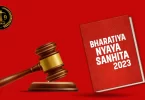Q. ‘A’ a minor falsely represents himself to be major, agrees to sell his house to ‘B’ for
Rs. One lakh. But subsequently he refuses to execute sale deed in favour of ‘B’. ‘B’ institutes a suit against ‘A’ for specific performance of contract on the ground of doctrine of estoppel because of false representation by ‘A’. Can court order for specific performance of contract regarding sale of house in favour of ‘B’? Give reasons.
Civil Services (I.A.S.) Exam. 1975 (Similar Problem)
West Bengal Judicial Services Exam. 1995 (Similar Problem)
U.P. Civil Services Main Exam. 1993 (Similar Problem)
Ans: No, court cannot order specific performance of contract regarding sale of house in favour of ‘B’ because doctrine of ‘Estoppel’ does not apply against a minor—Privy Council in Nawab Sadik Ali Khan v. Jai Kishor, AIR 1928 PC 152.
Reasons: In the famous case of Nawab Sadik Ali Khan v. Jai Kishor the Privy Council held that doctrine of ‘Estoppel embodied in Section 115 of Indian Evidence Act does not apply against a minor. Hence, a minor cannot be precluded from speaking the truth regarding his age.
In view of decision given by the Privy Council in Nawab Salik Ali Khan v. Jai Kishor it is clear that in the given problem ‘A’ (minor) cannot be compelled by court for specific performance of contract regarding sale of house in question even if he made a false representation about his age because the doctrine of ‘Estoppel’ does not apply against a minor.
Note: (1) ‘Estoppel’ Section 115 of Indian Evidence Act incorporates the doctrine of ‘Estoppel’ which is a rule of evidence. According to Section 115 when a person by words (Spoken or written) or by conduct induces another to believe that a certain state of things exist, he will not be allowed to deny the existence of that state of things.
The concept of Estoppel may be made more clear by following ‘Example’ attached to Section 115 of Indian Evidence Act—
“’A’ intentionally and falsely leads ‘B’ to believe that certain land belongs to ‘A’, and thereby induces ‘B’ to buy and pay for it.
The land afterwards become the property of ‘A’ and ‘A’ seeks to set aside the sale on the ground that, at the time of the sale, he had no title. He must not be allowed to prove his want of title.”
About ‘Estoppel’ Lord Halsbury remarks—“Estoppel arises, when you are precluded from denying the truth of anything which you have represented as a fact, although it is not a fact”.
(2) In Civil Services (I.A.S.) Exam. 1975 this problem was asked in following words—“’A’ sued on a mortgage deed executed by ‘B’. ‘B’ pleaded that he was a minor when he executed the deed. A pleads that ‘B’ is estopped from setting up the plea of minority as the mortgage loan was advanced on B’s representation that he was a major. Discuss the validity of the plea of estoppel.”
(3) In West Bengal Judicial Service Exam. 1995 a similar problem was asked in following words—“’A’ aged about 17 years enters into an agreement with ‘B’ for hiring out certain machinery belonging to B. After the agreement was signed, ‘A’ backs out of the agreement and ‘B’ wants to enforce the same. Discuss with reasons whether B will succeed or not”.
(4) In U.P. Civil Services Main Exam. 1993 a similar problem was given in following words—
“A minor falsely representing himself to be of age induces ‘B’ to enter into a contract. Subsequently ‘A’ in a suit brought against him, pleads his minority. ‘B’ advances the argument of doctrine of estoppel against ‘A’. Decide.”
Kishor Prasad





